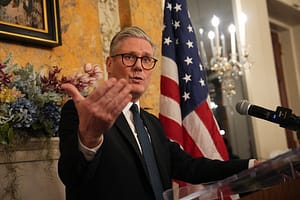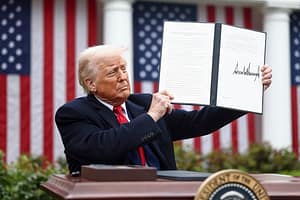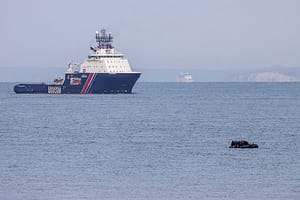Confusing the two is lazy and inaccurate
In The Inbetweeners movie the miserable teenager Simon agrees to get a smack in the balls every time he mentions his ex-girlfriend Carly. It might help if the same rule was applied to anyone referring to the European Union as “Europe”.
The vast majority of European institutions have nothing to do with the EU. The boundaries of the EU do not mark the edge of a free trade bloc, nor is the EU the same thing as a currency union (the UK and Sweden are members of the EU, but not of the currency union). Norway, Iceland, Switzerland and Lichtenstein are part of Europe but are not members of the EU. Same for the Ukraine, the Faroe Islands, Isle of Man, Russia, Macedonia, Bosnia & Herzegovina, Moldova, Georgia, Armenia, Belarus and Serbia.
The EU budget is a seventh of the UK government.
Over time the EU has tried to imply that it is synonymous with Europe. That it is the sun around which all European institutions revolve, and that isolation from the EU means being cut-off from European nations and bodies.
But the EU is in fact only one of a long list of European organisations.
Here’s a list of just some of the major bodies which have nothing to do with the EU:
UEFA
European Court of Human Rights
Council of Europe
European Broadcasting Union
European Pharmacopoeia Commission
European Association of Craft, Small and Medium-sized Enterprises
European Association of Archaeologists
European Society of Cardiology
European Association for Endoscopic Surgery
European Society for Human Genetics
CERN
European Association of Zoos and Aquaria
European Endangered Species Programme
European Association for Theoretical Computer Science
European Association for International Education
European Bioinformatics Institute
European Association for Evolutionary Political Economy
European Association of Historic Towns and Regions
European Journalism Centre
European Association of Science Editors
European Association of Conservatoires
European Higher Education Area
European Association for Quality Assurance in Higher Education
European Association of Urology
European Golf Tour
European Association of Environmental and Resource Economists
European Association of Geoscientists and Engineers
European Association for Astronomy Education
European Planetarium Network
European Association for Osseointegration
European Association of Co-operative Banks
European Association for Japanese Studies
European Association of Chinese Studies
Eurographics
European Association of Geochemistry
European Association for Chemical and Molecular Sciences
European Association of Political Consultants
European Patent Office
European Association for the Study of Diabetes
European Institute for Crime Prevention and Control
European Association for Renewable Energy
European Society of Endocrinology
European Association for Banking History
European Society of Criminology
European Association for Machine Translation
European Institute of Business Administration
European Institute of Oncology
European Institute of Cultural Routes
European Federation for Retirement Provision
European Athletic Association
European Institute for the Study of Contemporary Antisemitism
European Association for Body Psychotherapy
European Club Association
European Automobile Manufacturers Association
European Association of Fashion Retailers
European TRIZ Association
European Wind Energy Association
European Science Foundation
European Bank for Reconstruction and Development
European Space Agency
Arguably the most important of these bodies is the Council of Europe. The Council of Europe has 47 members, including Russia. Confusingly it uses the same flag as the European Union.
But, to repeat, it has nothing to do with the EU, which it predates and is considerably larger than.
The Council of Europe runs the European Court of Human Rights, which enforces the European Convention on Human Rights. That’s correct – human rights have nothing to do with the European Union. So when the Daily Mail moans at “another outrage” by the ECHR and its readers assume the European Union is the culpable party then they are guilty of an elementary error.
The Council of Europe also runs the European Pharmacopoeia Commission which monitors pharmaceutical products, something most people assume is a remit of the EU.
The other bodies on this list are also often assumed to be a part of the EU. None is.
UEFA is based in Switzerland and is “politically and religiously neutral”. Members include Kazakhstan and Israel. The European Broadcasting Union is the association of state broadcasters. The EBU is the force behind that most European of events, the Eurovision song contest. Members include Azerbaijan, Israel and Jordan. The reason Jordan doesn’t participate in the Eurovision song contest is because it refuses to broadcast Israel’s entry.
The European Association for Renewable Energy has offices in Russia and Ukraine, something not possible if only EU members were allowed to join. The European Association for Banking History connects bankers across the continent, including Albania, Iceland and Turkey. Former European Central Bank governor Jean-Claude Trichet is the president of this emphatically non-EU body.
The European Wind Energy Association has members from 60 countries – that’s more than twice the number of EU member states.
The EBRD spearheads the regeneration of Eastern Europe. The EBRD is owned by 61 nations, plus the EU and European Investment Bank. The EU is a mere shareholder. And not a very important one. Canada pays more in funding than the EU, Japan pays three times as much. In no way can the EBRD be said to be an arm or initiative of the EU. The USA has more involvement.
CERN is the organisation behind the Large Hadron Collider near Geneva which is searching for the Higgs Boson particle. CERN has no connection to the EU. It is funded and run by its 20 members states.
The European Patent Office is independent of the EU, though works increasingly in co-ordination with it. In fact it can’t be absorbed by the EU, because it is larger, including the likes of Turkey and Albania as full members. It needs to be independent of the EU to cover Europe properly.
How about free trade? Surely that is an EU issue? Not at all.
The nations of the European Economic Area includes non-EU members Norway, Iceland and Lichtenstein. Switzerland is not a member of either the EEA or the EU, yet has free trade and movement across the whole territory.
The EU will often claim to dominate certain activities, from defence to copyright. In fact the major bodies are usually international.
The main military organisation for the UK is Nato – which is outside the control of the EU. The main international trade body is the WTO. The main body for intellectual property is WIPO, which comprises 184 member states.
The EU would like us to imagine that it is “Europe”, and that it is the authority on trade, on culture, science, sport, medicine and every other area of co-operation by the nations of the continent.
The European Union is often frustrated by its lack of involvement in some of these important bodies. For example, the European Space Agency is an intergovernmental agency founded in 1975. It works perfectly well without any input from the EU.
T
hen in 2004 the EU joined as a member, and is now trying to insist the European Space Agency “co-ordinate” policy with the European Commission. But the ESA states clearly that it and the EU are “separate organisations” with “different ranges of competences, different Member States and are governed by different rules and procedures”.
The reality is that the European Union controls far less than most citizens imagine.
Far from being “Europe”, the EU is just one exotic club competing for attention with many, many others.





Leave a Comment